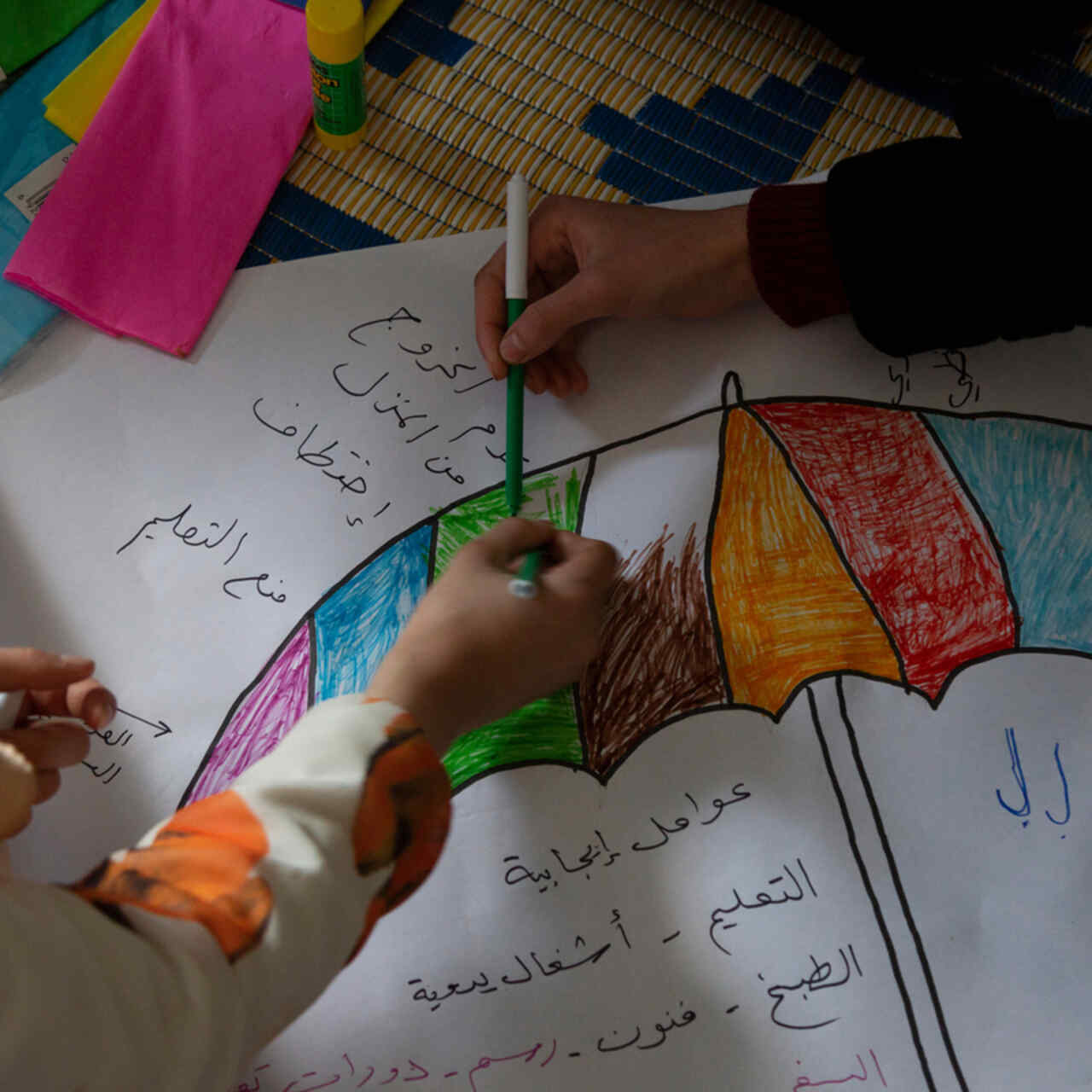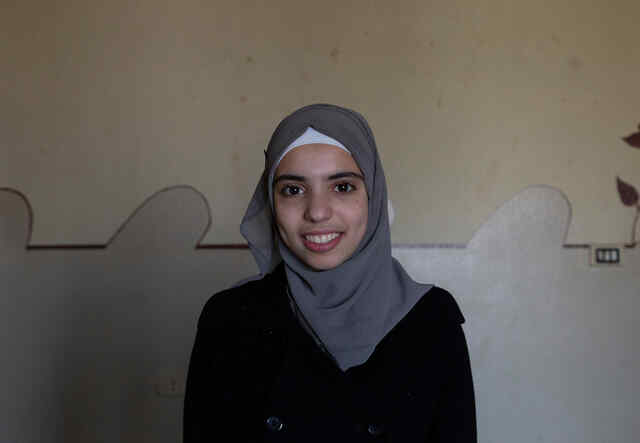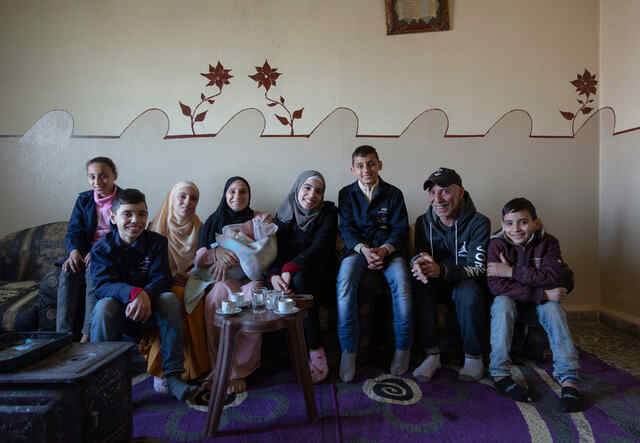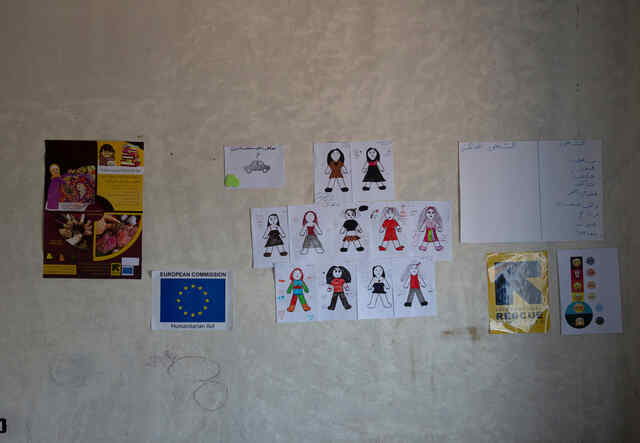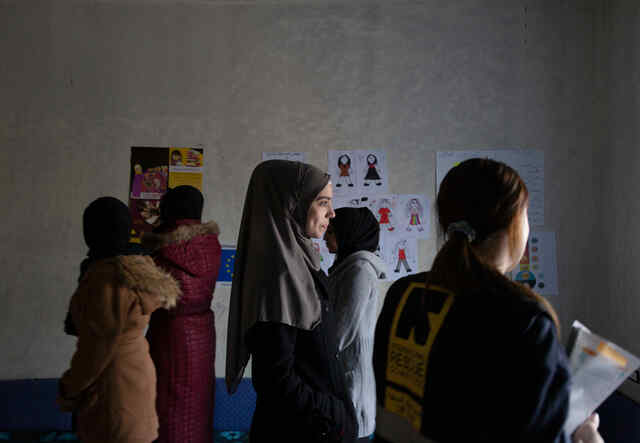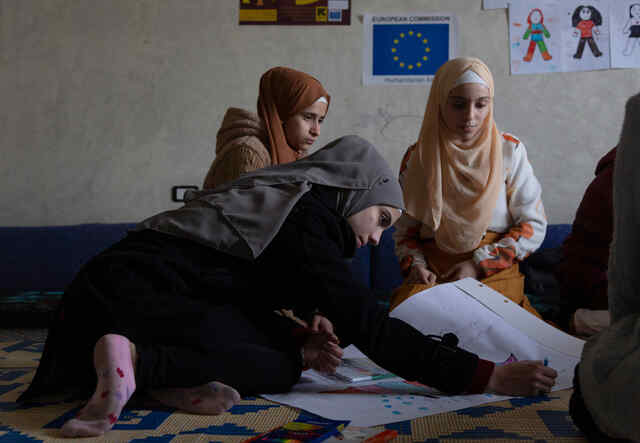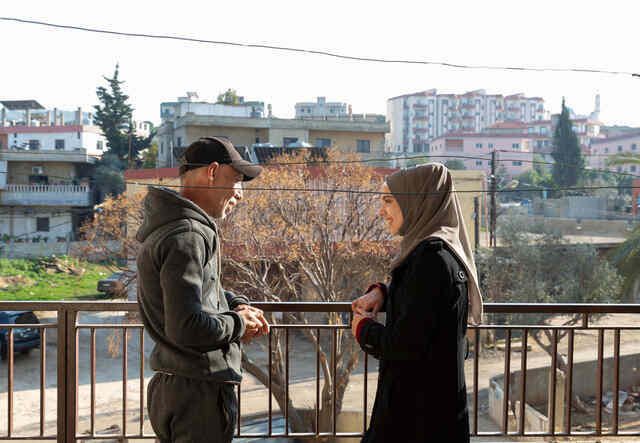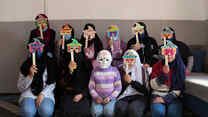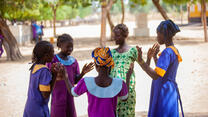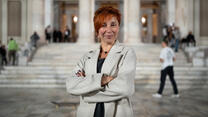Sabah* looks into the distance, as she remembers what her home in Syria was like before she fled.
“It was on the ground floor with four rooms, a kitchen, and a bathroom,” she recalls. “There were plants and flowers next to us, and we had a yard to play in.” Now 15 years old, she lives in a modest apartment with her family - who have been residing in Lebanon for the last eight years.
Sabah*, 15 years old, loves singing, acting and fashion. She dreams of one day completing her education and travelling abroad.
Photo: Dalia Khamissy for the IRC
In 2012, the International Rescue Committee (IRC) began aiding some of the 1.5 million refugees from Syria now residing in Lebanon. A growing financial and economic crisis in the country was only exacerbated by the onset of COVID-19, with resulting lockdowns disproportionately affecting Syrian families who had escaped war. Many turned to negative coping mechanisms such as skipping or reducing meals to keep up with rising inflation, or enlisting their children in labour to earn a sufficient income as a family.
Sabah's father, Hamza*, is no stranger to these problems. With skyrocketing rents and prices, he struggles to find a smaller, more affordable place for the family. Being unable to afford an automobile also means his children have to walk long distances to get to school - exposing them to harassment on the way.
Sabah* lives with her parents and five siblings in an apartment. The family love spending time together drinking coffee and listening to Syrian music.
Photo: Dalia Khamissy for the IRC
Approximately half of all Syrian children aged 11 to 18 years of age remain out of school in Lebanon. With adolescents, and particularly girls, most at risk of dropping out. Women and girls also disproportionately face the risk of early marriage and violence.
Sabah* has seen this first-hand. She too faced getting engaged to a man from her community at the young age of 13, after a neighbour approached her parents.
In response to issues facing women and girls, the IRC has launched a Women’s Protection and Empowerment (WPE) programme with the support of the European Union (EU). During almost two years of the programme, it became evident that adolescent girls were particularly at risk of gender-based violence, leading the IRC to create safe spaces for young women and girls to build a sense of community, learn their rights, and to voice their concerns in a non-judgemental and supportive environment.
The EU-funded sessions offer a safe space for young girls like Sabah* to build self-confidence and learn how to set boundaries.
Photo: Dalia Khamissy for the IRC
Having always been interested in the IRC’s activities and wanting an opportunity to get out of the house more, Sabah began participating in the EU-funded WPE programme. During these sessions she was able to develop a support network, and grew stronger in her hesitations about her impending marriage.
The programme sessions revolve around themes such as reproductive health, self-esteem, and decision making, often through creative mediums. The sessions also function as a way for young Syrian girls to get together and build friendships.
We got to know new people, unlike before when we would always stay in the house. We made solid friendships.
Sabah (centre) stands in the middle of a room surrounded by other Syrian refugee girls in the safe space where they take part in different kinds of activities with the IRC’s WPE team.
Photo: Dalia Khamissy for the IRC
After attending a few of the EU-funded sessions, Sabah* realised she was still too young to be married and that education was her right as a girl. She decided to open up to her parents completely. “I told them two things,” she says, recalling . “One, I don’t want to be married, and two, I want to finish my education.” Fortunately, her parents were extremely supportive. “They didn’t insist on the matter,” she says, relief washing over her face. “My dad said to let me do as I please, and my mother agreed.”
Sabah writes and draws on a carton on the floor, invested in a handicraft activity during an Adolescent Girl’s Initiative session.
Photo: Dalia Khamissy for the IRC
Elissar Hababe, 33, an Adolescent Girls Assistant with the IRC, has been leading the sessions Sabah attends with her sister Rania. There, she’s able to be a role model for young Syrian girls, as well as teach them important life lessons. “She never treated us like we were outsiders,” says Sabah*, recounting the impact her relationship with Elissar has made on her. “She always made us feel like she’s one of us - that she’s a friend.”
The girls who attend are also taught how to speak out in case of sexual or verbal harassment and informed about a hotline to call to report such assaults. Elissar is adamant that the girls should know their rights. “She tells us a woman should be firm. She should not be silent if someone harasses her,” explains Sabah*. “She should speak up and protect herself.”
Sabah* and her father Hamza*, 45, stand on the balcony of their apartment. Hamza constantly encourages Sabah to follow her dreams and not let anything get in her way.
Photo: Dalia Khamissy for the IRC
The obstacles Sabah’s* family face today - the fate of so many other Syrian refugees in Lebanon - are mostly financial. Despite the everyday hurdles, Sabah remains determined to focus her attention on school, her hobbies, and her dream of one day travelling abroad.
*Names have been changed to protect privacy.
About our work with the European Union
